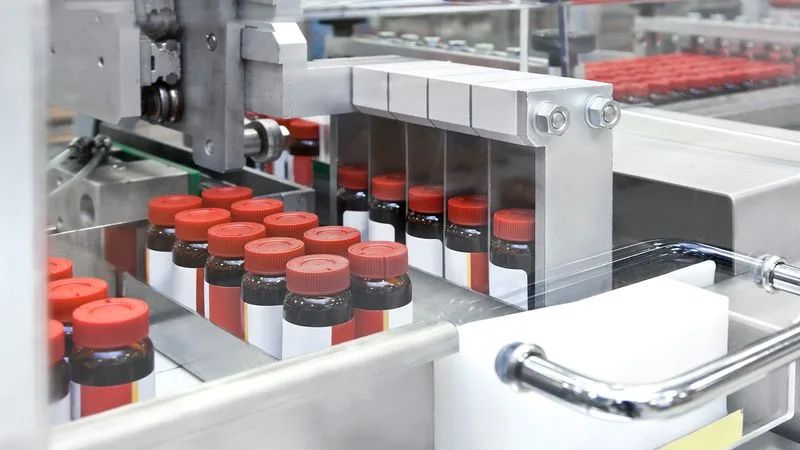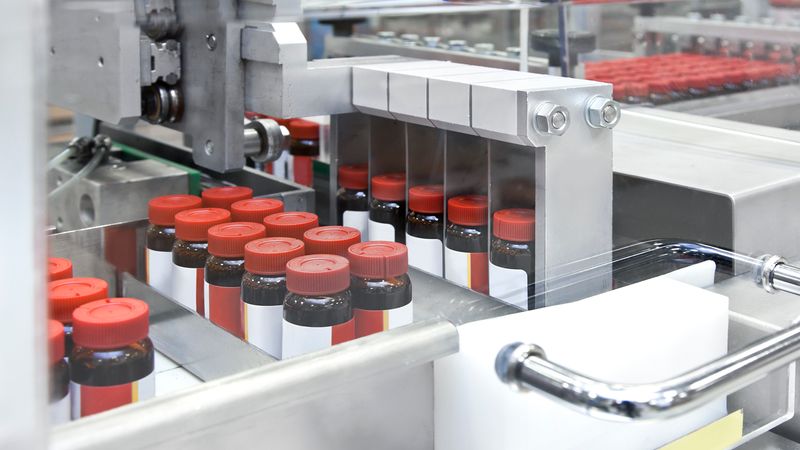Health supplements, which include vitamins, minerals, herbal extracts and probiotics, are becoming increasingly popular in the Middle East.
The wellness supplements market in the Middle East and Africa is worth US$11.06 billion in 2024, according to Market Data Forecast. With a compound annual growth rate (CAGR) of 4.69%, this market is expected to expand to US$14.91 billion by 2029. In the United Arab Emirates (UAE) alone, the vitamins and minerals segment generated US$112.70 million in 2024 and will see an annual growth rate of 2.26% till 2029, reports Statista.
Meanwhile, Saudi Arabia, the largest Middle Eastern market for dietary supplements in the region, will see its value grow by a CAGR of 7.07%, reaching US$382.82 million by 2028, a Research and Markets study indicates.
With the demand for vitamins and supplements rising in the region, Thai businesses can set their sights on this market for export opportunities.
Quick insights into the health supplements market in the Middle East
Before venturing into the Middle East, businesses should conduct market research to understand local health trends and consumer preferences to ensure their products align with regional demand.
Target age groups
Millennials, in particular, are highly influenced by multi-channel publicity that promotes healthy living, as highlighted in a report by Mordor Intelligence. This shift in mindset has extended beyond just one demographic, with immunity-boosting products such as probiotics, herbal supplements, vitamins and minerals becoming popular across all age groups.
What this means for exporters: Understanding the broad appeal of health supplements across multiple age groups can contribute to more strategic product diversification. Millennials, who are highly active on digital platforms, can be reached effectively through targeted social media campaigns that emphasize product transparency, and feature the supplements’ natural ingredients and specific health benefits. At the same time, older generations may be drawn to supplements that address long-term health issues, such as joint support or cardiovascular health.
Consumption trends
Providing a more comprehensive understanding of consumer habits, a cross-sectional survey conducted in six Middle Eastern countries revealed that supplements like vitamin C, vitamin D, iron, zinc, magnesium and vitamin B are among the most commonly consumed, reflecting the region's growing emphasis on maintaining overall health and wellness.
In affluent areas, beauty supplements targeting skin, hair, and nails have seen increasing popularity as people invest in products that promote both external beauty and internal health.
At the same time, rising obesity rates have sparked demand for natural weight loss supplements and weight management products.
The strong emphasis on family in Middle Eastern culture has also led to a growing interest in fertility-enhancing supplements, particularly pre-natal and post-natal products, as families prioritize health and wellness for both parents and children.
What this means for exporters: Thai exporters can tailor their product lines to match the region’s health concerns. For immunity-boosting supplements, focusing on convenient, easy-to-consume formats like effervescent tablets or gummies can attract consumers seeking accessible ways to support their health. Beauty supplements can be positioned as premium products with scientifically-backed claims. Weight management supplements should highlight natural ingredients and safety to meet rising obesity concerns.

Challenges of venturing into the Middle Eastern supplements trade
Culture and marketing
When exporting dietary supplements to the Middle East, businesses must be aware of the cultural and marketing challenges specific to the region.
Consumers in the Middle East are highly discerning, with 76% prioritizing authorized products, 75% seeking natural contents, and 68% valuing strict safety standards when purchasing supplements, the same cross-sectional study noted.
Marketing supplements, particularly those targeting women – such as beauty and fertility products – require a nuanced approach. For instance, when promoting beauty supplements for skin, hair and nails, businesses should consider cultural norms around modesty, especially for Muslim women. For example, beauty-related products can emphasize health benefits rather than appearance.
Similarly, when marketing fertility supplements, businesses can frame their messaging around family health and well-being, which are highly valued in the region. Highlighting the benefits of pre-natal and post-natal care, without being overly personal, ensures sensitivity to local values while addressing an important health concern.
Another critical factor is ensuring halal certification. Halal products meet religious dietary laws, making them more acceptable and trusted by consumers across the Middle East. Thai exporters should ensure their dietary supplements, especially those containing animal-derived ingredients like gelatin or collagen, comply with halal regulations to build trust and expand their customer base.
Engaging with local distributors or marketing agencies can provide valuable insights into the preferences and behaviors of Middle Eastern consumers. These partnerships help businesses position their products effectively in the market, respecting cultural sensitivities while addressing consumer demands.
Regulatory considerations when exporting to the Middle East
In addition to cultural factors, businesses must navigate the regulatory landscape when exporting dietary supplements to the Middle East. The region has diverse regulations governing imports of supplements, with countries like Bahrain classifying them as health supplements and Oman and Saudi Arabia categorizing them as food supplements. These differing classifications entail varying regulatory bodies and approval processes, affecting the importation, shipping fees and product registration.
In the Gulf Cooperation Council (GCC) region, businesses must comply with country-specific regulations and the GCC Standardization Organization's (GSO) guidelines. Supplements must be registered with local authorities, often requiring a designated local agent to facilitate the process. Failure to adhere to these regulations can result in delays, increased costs or even rejection of shipments.
To address these challenges, Thai businesses should work with reliable international shipping partners like DHL Express. Our end-to-end solutions can help you navigate the complexities of exporting from Thailand to Saudi Arabia, UAE, Kuwait and other Middle Eastern countries.
Businesses looking to streamline their export processes will benefit from our specialist advice, including customs documentation and clearance. We also offer targeted services, such as cold chain logistics to ensure temperature-sensitive supplements maintain their integrity down the supply chain. Get started by opening a DHL Express business account today.






